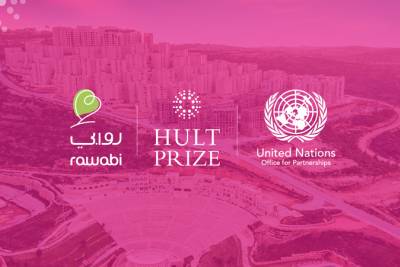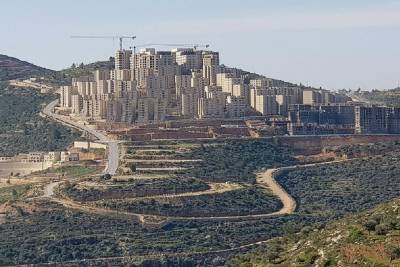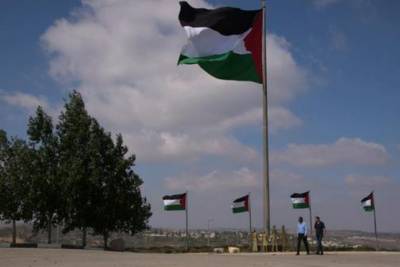First planned Palestinian city coming up fast
Oman Tribune - RAWABI (Occupied West Bank) A Palestinian state may still seem a long way off, but in the rocky hills of the Occupied West Bank, construction of the first planned Palestinian city is in full swing, a model for many here of the potential for independence.
With Palestinian flags sprouting from cranes among the rising apartment buildings, and a giant Palestinian banner on a commanding lookout point, the emerging city is both a symbol and a physical expression of nation-building.
Located a few miles north of Ramallah, the headquarters of the Palestinian Authority, it’s called Rawabi, or ‘hills’ in Arabic.
“The Palestinian state is a reality in the making, and this state had better be a first-class state, not second-rate, or it would be better not to have it,” said Bashar Masri, the American-educated entrepreneur who’s behind the project, speaking in a prefab complex that serves as his on-site office. “We need to prove to ourselves and have the self-assurance that we are able to build, despite the occupation. Without it, wait and see what we can do.”
The project, the largest private-sector Palestinian enterprise ever, has injected a ray of hope for many Palestinians into an otherwise bleak landscape of expanding Israeli settlements, military checkpoints and diplomatic deadlock despite a recent resumption of negotiations with Israel.
Intended to house up to 40,000 residents, Rawabi has all the trappings of modern community planning, with recreation and public areas, a high-speed fibre optic network for phones and Internet, a central gas supply, solarpowered water heating, and wastewater treatment and recycling for the irrigation of public parks.
Plans call for a pedestrian-only commercial centre, with shops, restaurants, a five-star hotel and spa, movie theatres, office towers, a cultural centre and convention hall. There also will be a complex of schools, as well as an outdoor amphitheatre and soccer stadium.
The development, intended to attract professionals and young families, would produce the first Palestinian city that was planned from start to finish, a stark contrast to existing Palestinian cities – urban sprawls built around ancient cores and plagued by spotty public services.
The developer of Rawabi is the Bayti Real Estate Investment Co., a joint venture of Masri’s development company, Massar International, and Diar, a Qatari government-owned real estate investment company.
Masri said that despite calls for boycotts of Israel in the Palestinian community, he had no problem working with Israeli companies, from which he bought building materials and other supplies, though he won’t do business with suppliers based in Jewish settlements. The Israeli authorities in the West Bank, for their part, have posted green Israeli road signs in Hebrew, Arabic and English pointing to the new city.
But the continued Israeli control of some 60 per cent of the West Bank, known as ‘Area C’, has created problems for the Rawabi project, which is in the Palestinian-controlled zone.
Masri said construction was delayed for two years while waiting for Israeli authorities to approve an access road that cut through Area C. The existing road is only two lanes, hardly sufficient for a planned community of 40,000.
Other planned access routes bisect Area C, and they’ll require negotiation for Israeli permits, as well.
To view original article, Click Here.



